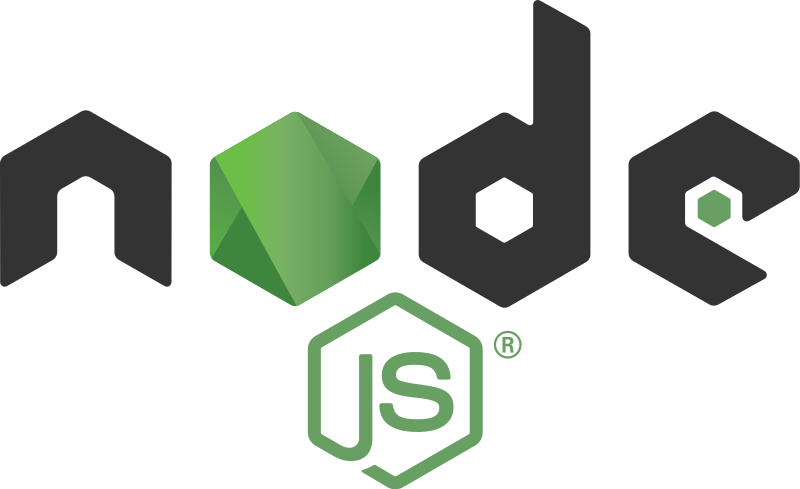Table Of Content
Discover How Node.js Development Can Help Your Project Reach New Heights
Just as frontend development is an important aspect of a project, the backend technologies you use to develop your project are equally important. With JavaScript being such a popular option for developers, they usually had to opt for something different when it came to server-side implementation. But since the advent of Node.js, teams can use Node.js development to take their JS projects to new heights.
However, while Node.js may be a godsend for many, it isn’t for everyone. In fact, no technology is. Identifying if your project may actually benefit from Node.js is something you need to do. If the answer’s yes, and you want a custom software development company to develop your project, choose one that understands the how and why of using Node.js for your project,
Let’s discover if Node.js is the right technology for our project, and how we can use it to our benefit.
What is Node.js?

To put it simply, Node.js is a server environment that runs on various operating systems and platforms using JavaScript. It is completely open-source, and is actually not a framework. In fact, Node.js is a runtime environment, which gives you the ability to execute JavaScript codebases on the server environment.
Since its release in 2009, Node.js has been extremely popular among developers; quickly rising to be one of the most commonly used web programming languages and technologies in development today. Its core elements consist of:
The Engine:
The development of Node.js is based on Google Chrome’s V8 JavaScript engine, which allows it to be quick and light for fast code execution. That means it’s not only capable, but also quick to develop and use.
Node Package Monitor:
Node.js development does not use an SQL database model, but rather a document-based one. The NPM (Node Package Monitor) has one of the largest registries for libraries in the world right now, which can be accessed to find and import any kind of functionality you desire for your software project.
Moreover, another one of NPM’s greatest benefits is the ability to reuse codebases to build new projects quicker, making code reusability a simpler task.
Event-Driven Architecture:
Unlike a few other technologies, Node.js does not create separate thread for each new request, nor does it wait for one request to end before it initiates another. In fact, it runs on a single thread that runs multiple requests on it.
When the server calls an API, but no response is received, the server moves on to the next API. Then, it’s the events module that helps the server get a response from the last API.
How Did Node.js Come To Be?

You might be surprised to know that Node.js is barely into its teens. Released in 2009, it was released almost 12 years after JavaScript came into being, and changed the way that JavaScript was used. Moreover, its impact is still noticeable in the world of software development, even today.
In its earliest form, Node.js was only supported by the MacOS and Linux platforms. Inspired by the capability of the V8 engine, a custom JavaScript engine developed by the Chrome browser team, developer Ryan Dahl came up with Node.js.
The custom JavaScript engine was highly capable of converting their raw code into easily executable machine code, which allowed processes to run quicker and more efficiently. This ability of JavaScript made it perform very well for websites and web apps. This made Ryan think – why not use it for the development of other products like:
- Server-side implementations
- Desktop apps
- Mobile apps
At that time, Netscape allowed the ability to trade web servers, using a product called Netscape LiveWire. It allowed users to create dynamic web pages using plan server-side JavaScript. That project failed, however. It wasn’t until Node.js hit the market that server-side JavaScript gained traction.
The reason for the success of Node.js is that it introduced many new ideas and techniques for developers to improve their projects, especially in server-side JavaScript implementation.
Pros and Cons of Using Node.js Development for Your Project
Node.js development has a singular purpose – creating highly responsive, fast, and scalable apps for the web and mobile environment that could cater to even high traffic businesses. These factors are what make it easier for developers to cater to the functional requirements of a project without worrying about affecting performance. However, that is only possible when Node.js is used in the right way.
For many projects, Node.js prime features can be a cause of big concerns, concerns that can derail the projects entirely. So, let’s take a look at the pros and cons of using Node.js, so that we can evaluate if it is the right solution for our software project.
Pros of Node.js
First, let’s look at the benefits that Node.js development offers us, and how it can help us improve the different types of websites and web apps we create for our projects.
- Easy to learn and use
As the technology is based on JavaScript, and that is a language that many developers are already familiar with, learning to use Node.js is easy. And for the techniques that you do not know, you will quickly learn due to your expertise in JavaScript.
- Efficient and easily scalable
The microservices feature available in Node.js allows developers to break down your application into several distinct services, each of which is assigned a separate task. This makes it easy to scale up your software projects, as well as allows you to add new functionalities to it without affecting the rest of the product.
Moreover, as it is all part of the JavaScript family, your team of developers can use a single programming language for all its functions, backend and frontend. Essentially, this allows you to perform full-stack JavaScript development.
The use of the same technology for both front and backend of the project allows for quicker communication between the server and the client, making data synchronization easier.
- Allows streaming of data
Node.js allows for quicker processing of data steams for large files like audio or video clips. The way it does that is instead of buffering the entire file; it breaks it down into chunks, and sends the data piece by piece to the user.
This allows Node.js to use system memory according to the size of the chunk, rather than for the whole file, which makes it easier to support real-time encoding of the audio or video file being streamed.
- Reduces developmental costs
There are multiple ways Node.js development helps reduce your development costs. For one, as the frontend and backend uses the same language to develop, you can have a combined team of JavaScript developers to create your project in its entirety.
Moreover, the serverless feature allows your app to scale up by itself when the traffic increases. That means that you only pay for the services you require, when you require them.
- Large community of developers
One of the best pros of using Node.js is that both it and Javascript has a rich community of developers who are eager to help each other. For most of the common issues and problems, developers will be able to find help online.
Moreover, as JavaScript has been around for more than two decades now, chances are that whatever problem you run into, someone else will have done it too. Therefore, there will be a solution available for that on different popular online forums.
Cons of Node.js
Now that we’ve discussed the pros of Node.js development, let’s look at a few cons of using Node.js too.
- Single thread application
One of the primary benefits of Node.js is also its biggest drawback. The single-thread architecture of the technology makes it unsuitable for applications with huge computational demands. That is because this model is not designed for such implementations, as its efficiency decreases as the load increases.
Once a load-intensive request is generated, it holds up the resource queue until it is fulfilled, leaving other tasks pending in that process thread. This increases the system’s response time, which is why for applications with large amounts of data, something that uses multi-threaded process queues is the way to go.
- Third party modules in NPM can cause issues
Using third-party tools and modules is iffy at the best of times, if not for the fact that finding the right modules that are both reliable and secure. NPM uses third-party modules to extend its functionality. However, as Node.js development is open-source, many people create and upload their libraries and tools online free.
And due to the unknown skill levels of these developers, these free resources are hard to trust for your project. That is why for projects that demand reliability, the developers are bound to use modules created by verified sources only.
Applications of Node.js Development

There are numerous applications where Node.js development can help you create a better, more reliable app. And that is why it has quickly been rising in popularity in the past few years. According to Statista, Node.js has overtaken React.js to become the most popular JavaScript framework used in 2022. So what kind of applications are benefitting from the use of Node.js in their development?
Let’s find out.
- Netflix
Netflix uses Node.js in order to handle their data-intensive requests for video streaming, as well as to allow Netflix to scale up easily.
- Uber
Uber uses the JavaScript framework to improve their complex ride matching system, as well as to benefit from Node.js’s vast community of open-source enthusiasts.
- PayPal
PayPal also uses Node.js for its data-handling capacities, as well as its ability to allow for quicker build times.
- Walmart App
Walmart uses Node.js to handle its large volume of concurrent requests from users, as well as to allow for a feature-rich client-side interface.
When Should You NOT Use Node.js
While its true that Node.js development is highly versatile, and can be used for a lot of applications, there are scenarios where using it can cause more harm than good. As we mentioned earlier, using Node.js for applications with huge amounts of data processing will result in a subpar product, especially for applications like:
- Image processing
- Video/audio editing rendering
- AI and machine learning projects
- Simple apps with a direct data link to their servers
Avoiding using Node.js for these applications, and the ones like them, will help you create more robust software projects.
Summing Up
To sum it up, Node.js is a highly versatile and robust JavaScript framework that can help you create beautiful software projects easily. Now, when used the right way, Node.js development can be a huge advantage, especially in applications when data-intensive tasks are involved.
However, there are applications that do not work well when Node.js is used. And in those scenarios, it can have little to no effect, or it can be a nuisance. Therefore, if you follow the guidelines given above regarding the best applications for Node.js, you will be able to utilize it to the best of its abilities.
FAQs
| What is Node.js development? Node.js is an open-source, cross-platform runtime that is used to develop server-side and network apps. It is developed using JavaScript, can be used with all major OS platforms, including OS X, Windows, and Linux. |
| What is Node.js used for? It is primarily used for non-blocking, event-driven server apps, as it utilizes a single-thread model. While it is used for websites and backend services, its primary application is for real-time, push-based architectures. |
| What is better – Node.js or Python? According to Statista, Node.js is the most popular web development framework of 2022, making it the more popular choice. |
| Is Node.js frontend or backend? Incidentally, Node.js is designed for both frontend as well as backend developmental tasks. |
Empower your digital initiatives with BariTechSol, a premier custom software development company. Our skilled team tailors cutting-edge solutions to your unique needs. Elevate your tech experience and stay ahead in the digital realm. Partner with BaritechSol and code the success of your next big idea.


